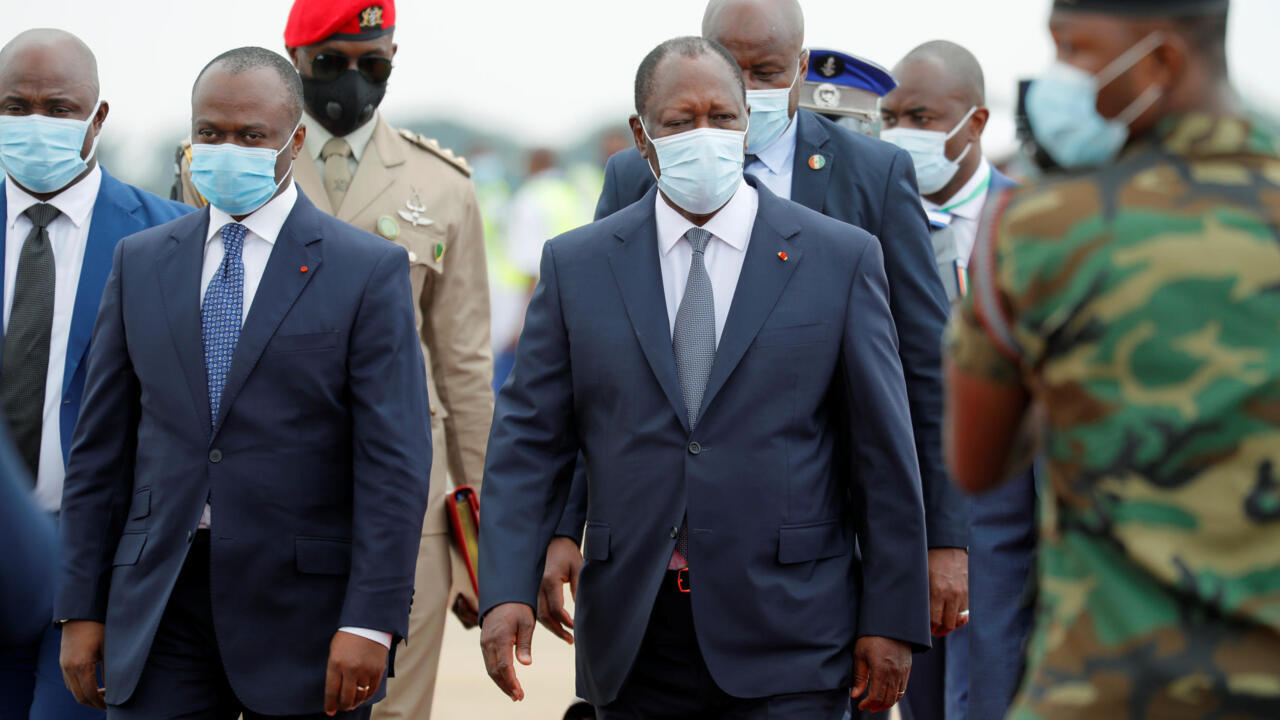
Ivory Coast's President Alassane Ouattara arrives at the airport for the Economic Community of West African States (ECOWAS) consultative meeting in Accra, Ghana September 15, 2020. Reuters/ Francis Kokoroko
With Côte d’Ivoire’s presidential election fast approaching, a high-profile delegation from the West African Forum of Elders arrived in Abidjan on Tuesday to assess the country’s electoral preparedness and promote dialogue among political stakeholders.
Led by former Beninese President Thomas Yayi Boni and Nigeria’s former President Goodluck Jonathan, the delegation held talks with Ivorian Vice President Tiémoko Meyliet Koné. Also present was Mohamed Ibn Chambas, the former UN Special Representative for West Africa and the Sahel, underscoring the regional importance of the mission.
The visit comes just over three months before Ivorians head to the polls in a vote widely viewed as a litmus test for the country’s democratic maturity and post-conflict stability.
“We had an in-depth discussion on the challenges facing our sub-region: stability, democracy and social cohesion, particularly during election periods,” Vice President Koné stated after the meeting.
He emphasized the collective responsibility to safeguard peace, adding, “Peace is never achieved. It must be cultivated, listened to, and built.
I deeply believe that West Africa has the human and moral resources to chart its own course, in serenity and dialogue.”
The West African Forum of Elders was established by the region’s heads of state to engage proactively with member countries during politically sensitive times.
Its role has grown increasingly vital amid rising electoral tensions and democratic backsliding in parts of the Economic Community of West African States (ECOWAS) region.
As Côte d’Ivoire prepares for its next electoral milestone, the Forum’s presence aims to signal both solidarity and scrutiny.
The delegation’s meetings are expected to continue with civil society groups, electoral authorities, and opposition leaders in the days ahead.
With regional stability on the line, all eyes remain on Abidjan, where the tone set now may shape political dynamics well beyond the Ivorian borders.



